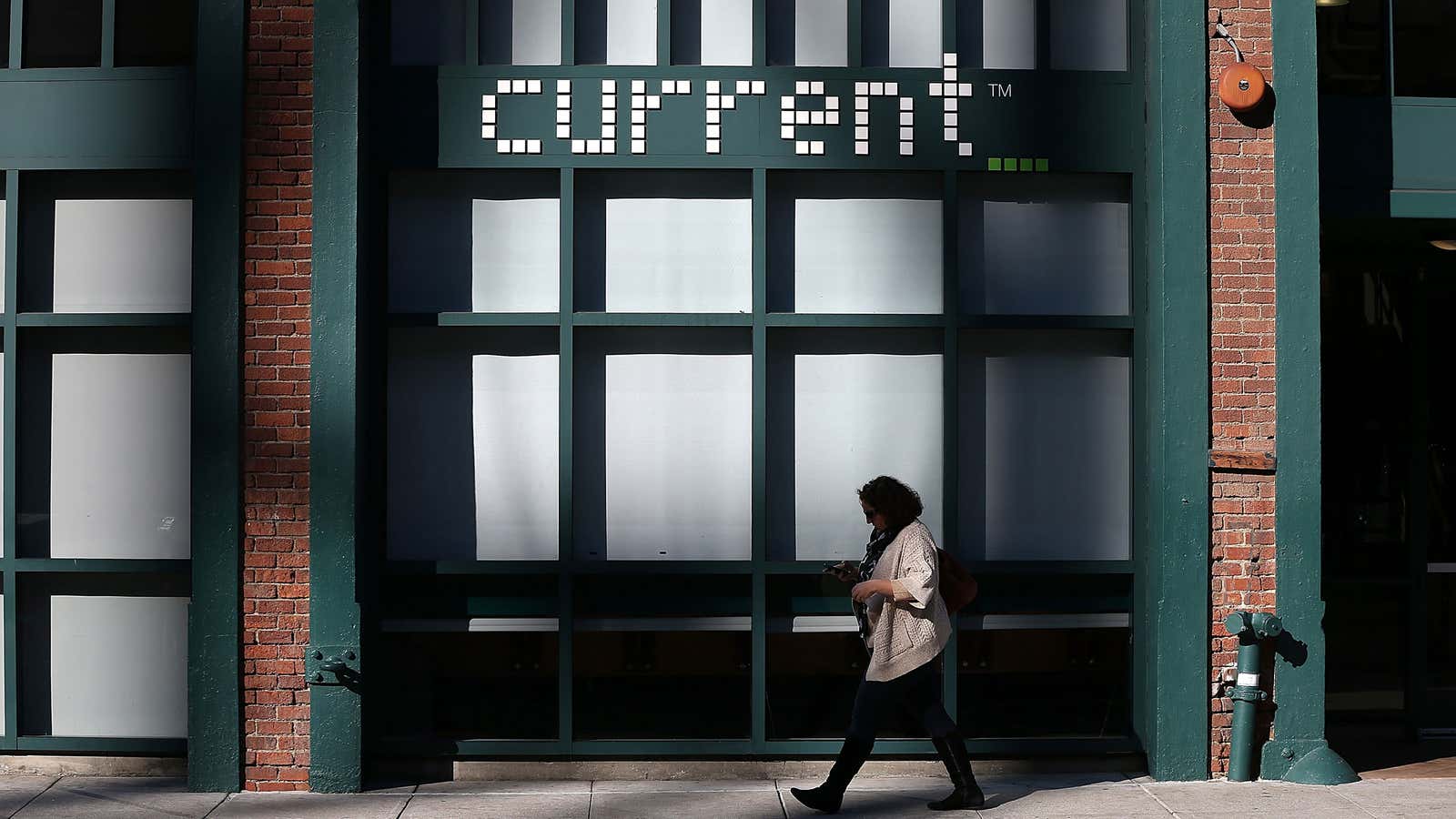On the surface, little should stand in the way of Al Jazeera’s purchase of Al Gore’s Current TV. One little-watched cable television channel in a land of a thousand would hardly seem a national security matter that would bring review by the official Committee on Foreign Investment in the US (Cfius). And the US Federal Communications Commission says it “doesn’t have regulatory oversight of transactions relating to ownership of cable networks.”
But a number of foreign companies, including China National Offshore Oil, its compatriot Huawei, and the UAE’s DP World have learned to their regret that there’s more to the process of buying US assets than what is written in the rules, especially once politicians get involved.
Conservative commentators have already taken aim. Glenn Beck, the former Fox News program host now running TheBlaze TV, revealed that he had unsuccessfully approached Gore and co-owner Joel Hyatt about buying Current to use for his channel, which like Al Jazeera, relies primarily on internet distribution to reach US viewers.
“We were not allowed to the table,” Beck said during his radio show last Thursday. “He [Gore] didn’t sell to the highest bidder. He looked for, ‘Who do I ideologically align with?’ The vice president of the United States of America tells you he is more ideologically aligned with Al-Jazeera than an American broadcaster who believes in America.”
Cliff Kincaid of conservative group Accuracy in Media meanwhile framed the deal thus in an article “Terror TV Pays Al Gore $100 Million for US Media Access“:
Al Jazeera, once considered the voice of Osama bin-Laden and known for anti-American and anti-Semitic rhetoric, has announced the purchase of Al Gore’s low-rated cable channel, Current TV, in a transparent attempt to buy access to the US media market for operatives of the pro-terrorist Muslim Brotherhood.
While Kincaid may be on the fringe, Al Jazeera will need to tread carefully. But so far, it has taken a literal approach to the deal approval process, declaring in its initial announcement:
The transaction has already cleared antitrust review by the Department of Justice under the Hart-Scott-Rodino Act. Both parties to the transaction are privately held companies and it does not require any additional federal regulatory review or approvals. The transaction does not involve any federal communications licenses or other assets subject to FCC approval. None of the statutory factors that trigger a CFIUS review – e.g., production of important technology, production of military goods, operation of critical infrastructure – are implicated in this transaction…. This acquisition merely increases the availability of Al Jazeera programming to additional American viewers.
But as the Financial Times reported in a discussion of Chinese investments, “Failure to notify Cfius can be relied on to fuel US government concerns, lawyers say.” That is, it’s better to ask for Cfius to get involved upfront rather than wait for politicians to call for it to do so.
Ralls, a Chinese-owned wind power developer, bought land in Oregon last year for a wind farm without alerting Cfius. A Pentagon official tipped the agency off to the deal after reading about it in a trade magazine and the agency then told Ralls it wanted to notification about the deal. Ralls filed, then the agency responded with an order to stop work because the site was close to a US Navy testing area. Huawei in 2011 similarly was forced to undo a deal to buy patents from US computer server company 3Leaf after Cfius officials learned about it from an indirect reference on LinkedIn.
Other Chinese companies have take the hint about getting Cfius involved first. Dalian Wanda Group for instance last summer sought and received clearance from Cfius for its $2.6 billion deal to buy AMC Entertainment’s nationwide chain of movie theaters.
In the infamous DP World case, the Dubai-based company in 2006 secured Cfius approval to take over operations at a group of US ports from the UK’s P&O before Senator Chuck Schumer and other politicians began to question the security implications of allowing an Arab government-owned company to run US port facilities. DP eventually gave up in the face of sustained congressional opposition and sold the ports.
News broadcasting is more politically sensitive than cinema operation and Al Jazeera is a much more controversial acquirer than Dalian Wanda, which was previously unknown in the US. Though they share a similar ownership background, Al Jazeera is arguably a more provocative buyer than DP World. Take for instance this 2010 reference to the network by Republican Representative Steve King of Iowa:
What happens in the mind of that al-Qaeda terrorist that’s sitting in that mud hut making his bomb, watching Al Jazeera TV, when he sees the Speaker of the House come out on the floor and speak up and oppose the war in Iraq or Afghanistan?
That’s not to say King or others will stop Al Jazeera’s buyout of Current TV or that an internet petition to get the FCC to stop Al Jazeera America will go anywhere. But it shouldn’t come as a surprise if some House Republicans decide to cast a spotlight on the US expansion plans of a network still associated by many Americans with its early broadcast of al-Qaeda videos.
